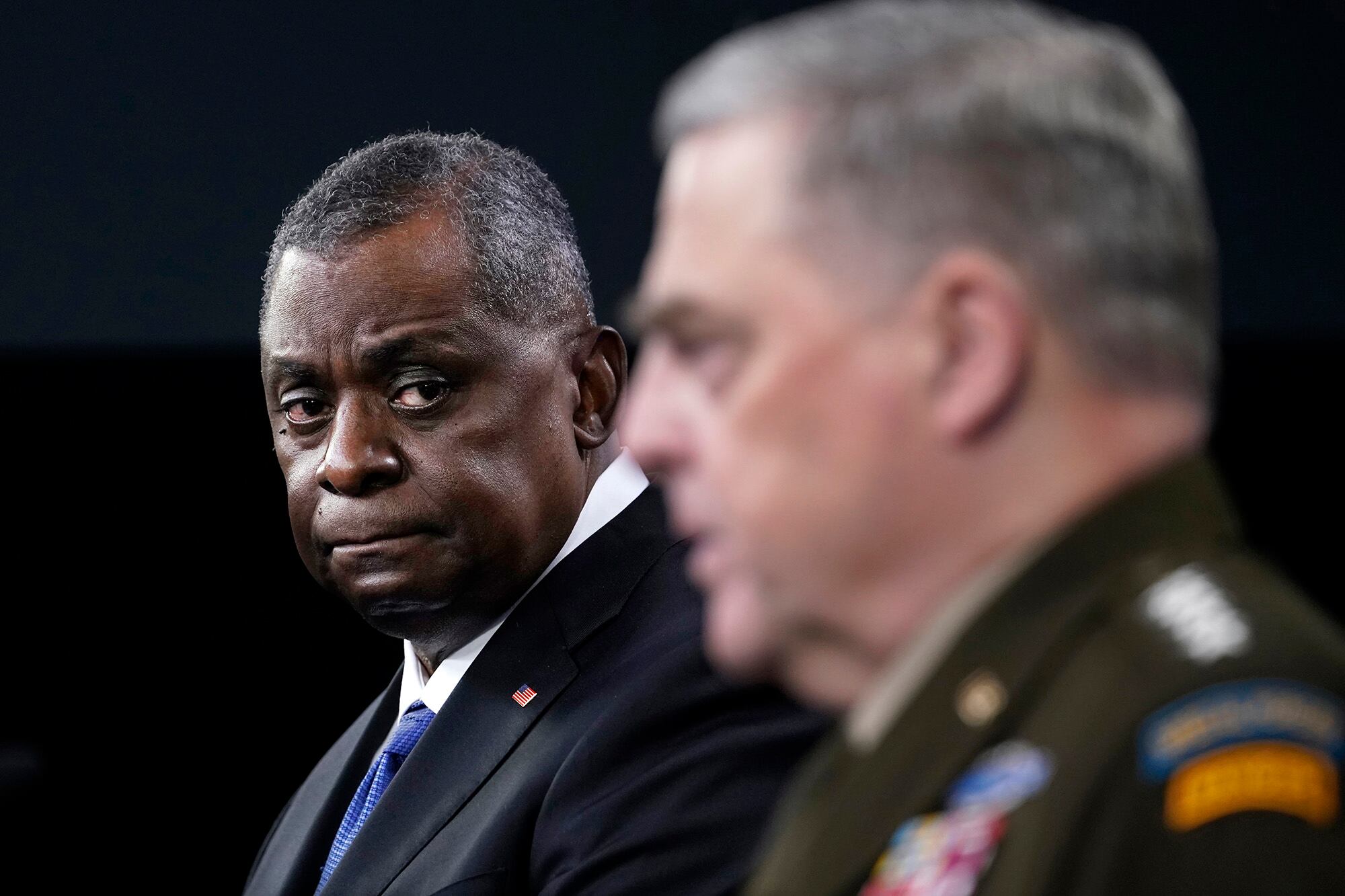In testimony before senators who are working on legislation to remove sexual assault prosecutions from a commander’s authority, Defense Secretary Lloyd Austin implied he intends to recommend to the president that the military’s legal system be altered in some related way.
It’s been roughly six weeks since an independent review commission recommended that Austin take steps in that direction, but since then, he has taken time to gather opinions from the service chiefs and secretaries, not setting a deadline for his final decision.
“I want to be sure that whatever changes to the [Uniform Code of Military Justice] I recommend to the president ― and ultimately to this committee ― are scoped to the problem we are trying to solve, have a clear way forward on implementation, and ultimately restore the confidence of the force in the system,” Austin said in prepared remarks to the Senate Armed Services Committee on Thursday.
While Austin is looking specifically at whether to remove sexual assault and harassment cases from the chain of command, to be handled by professional military prosecutors, the Senate is considering a bill that would take all felony offenses out of a commanding officer’s hands.
This would serve to “remove biases across the board and to professionalize the entire military justice system,” Sen. Kirsten Gillibrand, D-N.Y., told Austin, the first Black defense secretary, citing research showing that Black troops are more likely to be charged under UCMJ than their white peers.
The British, Israeli and other armed forces have moved to that model, she added, while the U.S. has held on to a system where commanders decide whether to charge their own troops, and whether those charges go to trial.
Austin and his chairman of the Joint Chiefs of Staff, Army Gen. Mark Milley, steered the conversation back to sexual assault when asked about the possibility of expanding the idea of independent prosecutors to all felonies.
“I think that requires some detailed study before we completely overhaul the entire UCMJ,” Milley said, adding that he still has an open mind about prosecuting sexual assault differently, “And I think that’s also true of most of the senior leaders in uniform.”
While his mind is open, Austin said, sexual assault and sexual harassment,” are the problems that we are trying to resolve and improve,” he said.
Since reintroducing her legislation in April, Gillibrand has recruited 66 cosponsors, she said ― a bipartisan effort that would give the Military Justice Improvement and Increasing Prevention Act its first real chance at passage since her first attempt in 2013.
The bill would give six months to implement any changes, which Sen. Thom Tillis, R-N.C., said seemed like not enough time.
“We’ll need the adequate time to implement the change in a very responsible way,” Austin said, including resources and flexibility “so if there’s something that needs to be adjusted, we can adjust.”
Austin told Gillibrand she has his commitment to keeping an open mind, “and also my commitment to working expeditiously with you as you consider legislative proposals.”
Meghann Myers is the Pentagon bureau chief at Military Times. She covers operations, policy, personnel, leadership and other issues affecting service members.





